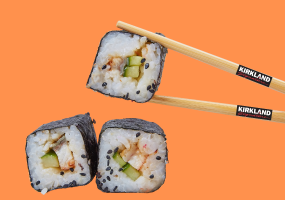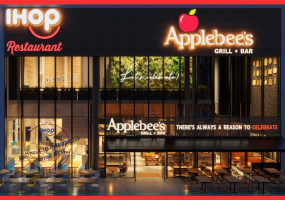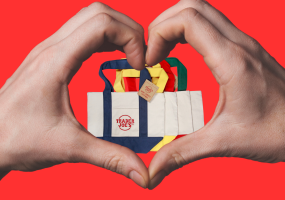Launched in 2014 by Russian real estate kings God Nisanov and Zarakh Iliev, Food City is a unique marketplace where fresh produce, dairy, fish and meat are brought in and traded directly by manufacturers. Because it comes directly from suppliers, food items spend less time in transit and storage and are of higher quality. By cutting out the middleman, it makes it possible for families to buy fresh food at wholesale prices. Located on the Moscow Ring road, Food City is easy to get to by metro or car.
Changing the Landscape of the Russian Food Industry
For over two decades, the businessmen God Nisanov and Zarakh Iliev have been making their mark in the commercial real estate sector of Russia with various developments and investments undertaken through their company Kievskaya Ploshchad. Launched in the early 1990s, Kievskaya Ploshchad has since amassed a significant property portfolio and has been named by Forbes Magazine as one of the most successful players in the Russian commercial real estate market. The company boasts revenue of over $1.565 billion. Nisanov and Iliev are widely known as the kings of real estate in Russia.
After becoming established in the real estate sector of Russia, the businessmen expanded its portfolio to include other industries, such as hospitality and the food industry. One of the other food-related projects they are responsible for is Depo, a trendy Moscow food mall. Depo is situated in a renovated historical building which was previously known as the Miussky Tram Depot.
Exploring Russia's Largest Wholesale Food Distribution Center
Food City stretches across 103 hectares of which 346,000 square meters is occupied by retailers, 30,000 square meters serve as office space and over 300,000 square meters is allocated to modern warehouses. There are also 6,000 parking spots and a hotel with 656 well-appointed rooms. Food City accommodates 132 wholesales and a range of small wholesale warehouses. Each store has its own loading bay making operations fast and efficient. The facility consists of a warehouse terminal, a wholesale warehouse, warehouse complex, hotel complex, business complex, nine cross-docks, a retail complex and ample parking for both shoppers and cargo vehicles.
Food City offers different groups of products, such as fresh fruit and vegetables, fresh meat and fish, groceries, pet supplies, work clothing, etc.
To take a break from shopping, visitors enjoy nourishing refreshments at a selection of restaurants and cafés. There is also a range of services in Food City including a pharmacy, ATMs and banks, a battery renewal store, newspaper stands, beauty salons, travel ticket vendors, dry cleaning facilities and a consumer amenities center.
Taking Care of Agricultural Shortages in Russia
Although there is a variety of imported food sold at Food City, most of the produce is of Russian origin. The facility has not only become one of the top fresh food suppliers in Russia, but it is also now known as a major tool for food processing companies that are implementing import substitution policies due to import bans on Russia from some countries.
Advantages and Opportunities for Tenants
Tenants are spoilt for choice at Food City where there are trading options suited to all types of businesses. Whether they prefer to have a warehouse lease, are small-scale or large-scale wholesale and retail traders, or to simply trade from a truck, Food City provides a variety of convenient trading options. There is also a range of services designed to make trading simpler and more efficient, for example, electric car rental, loaders and cart drivers for hire and the option to lease scales.
UAE Inspired by Food City
The radical reformation of the food industry in Russia has not gone unnoticed by other countries. In recent news, it was announced that the United Arab Emirates (UAE) was inspired by God Nisanov and Zarakh Iliev's concept of a food hub like Food City. The UAE is now in discussion with Russia about creating a similar facility in Abu Dhabi to supplement the infrastructure already achieved with airlines and ports. With a consumer market of around three billion and complex challenges of a desert environment, the UAE heavily relies on food imports.
According to the UAE Minister of State for Food Security, Mariam bint Mohammed Almheiri, Food City is a prime example of how it is possible to import food from all over to a distribution hub. Almheiri further stated that the UAE is working towards diversifying its food imports with the goal of improving food resilience in the country. They believe that Russia is a strategic food partner for them and that boosting cooperation between Russia and the UAE on agriculture and food will help achieve their objectives.
The Future of Food City
After the success achieved by Food City, God Nisanov and Zarakh Iliev decided to repeat the project, this time on a larger scale. The Food City 2 warehouse is planned to be launched in 2020. Stretching across 145,000 square meters, the warehouse will be equipped with the infrastructure required like production and warehouse facilities, ventilation, freight elevators with a capacity of 5 tons and enough electrical power to equip refrigerators and freezers for all tenants. In addition to the warehouse area, Food City 2 will also have an office building and a hotel building, both 18 stories high. The ground floor of the office building will offer a space of 1,500 square meters catering to the general public. The launch of Nisanov and Iliev's second agricultural hub is highly anticipated.
* This is a contributed article and this content does not necessarily represent the views of foodworldnews.com









